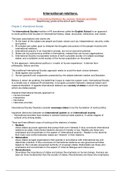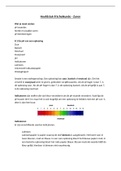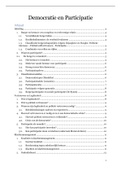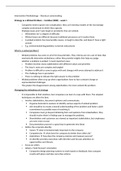Samenvatting
Summary International Relations Part 2
- Instelling
- Universiteit Van Amsterdam (UvA)
This summary contains all the readings (Including the book of Holman!) and the articles for the second part of the course. It is an extensive and detailed summary that gives a great overview of all the readings for the exam. Good luck with studying!
[Meer zien]












